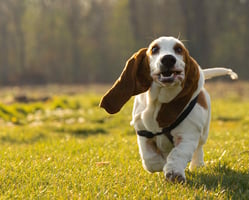Training a Cocker Spaniel puppy is a rewarding experience. With the right approach, your puppy will...
Cocker Spaniel Training: A Guide to Training Your Cocker Spaniel
Training a Cocker Spaniel can be a rewarding experience for both you and your pet. This guide will provide helpful tips and techniques to ensure that your Cocker Spaniel learns quickly and is well-behaved. We will also discuss the most common questions people have about Cocker Spaniel training and how to address them.
Getting Started with Cocker Spaniel Training
Before you start any training with your Cocker Spaniel, it is important to understand the basics of training. This includes understanding the different types of training, the importance of positive reinforcement, and how to establish a consistent training routine.
The most common types of training for Cocker Spaniels are obedience, agility, and hunting. Obedience training is the most important type of training and teaches your Cocker Spaniel basic commands such as sit, stay, and come. Agility training is less common, but it is helpful for teaching your Cocker Spaniel to jump, weave, and run through obstacle courses. Hunting training is the least common type of training, but it is helpful for teaching your Cocker Spaniel to hunt and retrieve game.
Positive reinforcement is key when it comes to training your Cocker Spaniel. This means rewarding your Cocker Spaniel with treats and praise when they perform a desired behavior. It is important to be consistent with your rewards and to avoid punishing your Cocker Spaniel for undesired behaviors.
Finally, it is important to establish a consistent training routine. This means setting aside a specific time each day for training and sticking to it. This will help your Cocker Spaniel learn quickly and will make the training process more enjoyable for both you and your pet.
Common Questions About Cocker Spaniel Training
When it comes to training your Cocker Spaniel, there are many common questions that pet owners have. Below, we will discuss the most popular questions about Cocker Spaniel training and how to address them.
How Long Does It Take to Train a Cocker Spaniel?The amount of time it takes to train a Cocker Spaniel will vary depending on the type of training you are doing and the individual Cocker Spaniel. Generally, it takes between four to six months to train a Cocker Spaniel in obedience, agility, and hunting. It is important to be consistent with your training and to be patient with your Cocker Spaniel as they learn.
What Is the Best Age to Start Training a Cocker Spaniel?The best age to start training a Cocker Spaniel is between 8 and 12 weeks old. This is because puppies are more impressionable and learn more quickly than older dogs. However, it is never too late to start training a Cocker Spaniel, and older dogs can still learn new behaviors with the right training techniques.
What Is the Best Way to Teach a Cocker Spaniel Tricks?The best way to teach a Cocker Spaniel tricks is through positive reinforcement. This means rewarding your Cocker Spaniel with treats and praise when they perform the desired behavior. It is also important to be consistent with your rewards and to avoid punishing your Cocker Spaniel for undesired behaviors.
How Do I Stop My Cocker Spaniel From Jumping?The best way to stop your Cocker Spaniel from jumping is to ignore them when they jump. This means avoiding eye contact and not speaking to them or petting them when they jump. It is also important to reward them with treats and praise when they do not jump. Finally, it is important to avoid physically pushing them away or scolding them when they jump.
How Do I Stop My Cocker Spaniel From Barking?The best way to stop your Cocker Spaniel from barking is to ignore them when they bark. This means avoiding eye contact and not speaking to them or petting them when they bark. It is also important to reward them with treats and praise when they are quiet. Finally, it is important to avoid physically pushing them away or scolding them when they bark.
How Do I Stop My Cocker Spaniel From Chewing?The best way to stop your Cocker Spaniel from chewing is to provide them with appropriate chew toys. It is also important to reward them with treats and praise when they chew on the appropriate toys. Finally, it is important to avoid physically pushing them away or scolding them when they chew on inappropriate objects.
Conclusion
Training your Cocker Spaniel can be a rewarding experience for both you and your pet. This guide has provided helpful tips and techniques to ensure that your Cocker Spaniel learns quickly and is well-behaved. We have also discussed the most common questions people have about Cocker Spaniel training and how to address them. With the right training techniques, you can ensure that your Cocker Spaniel is obedient, well-behaved, and a joy to be around.



